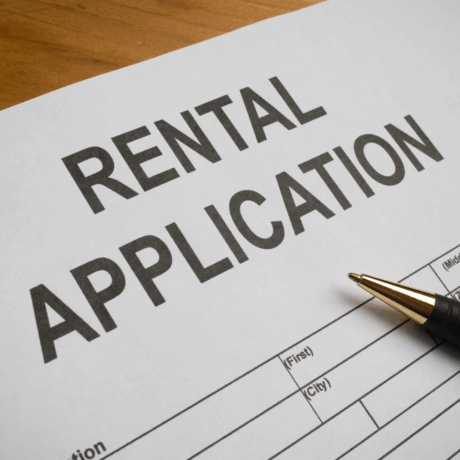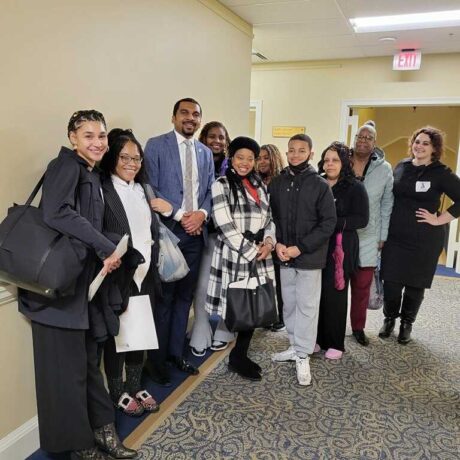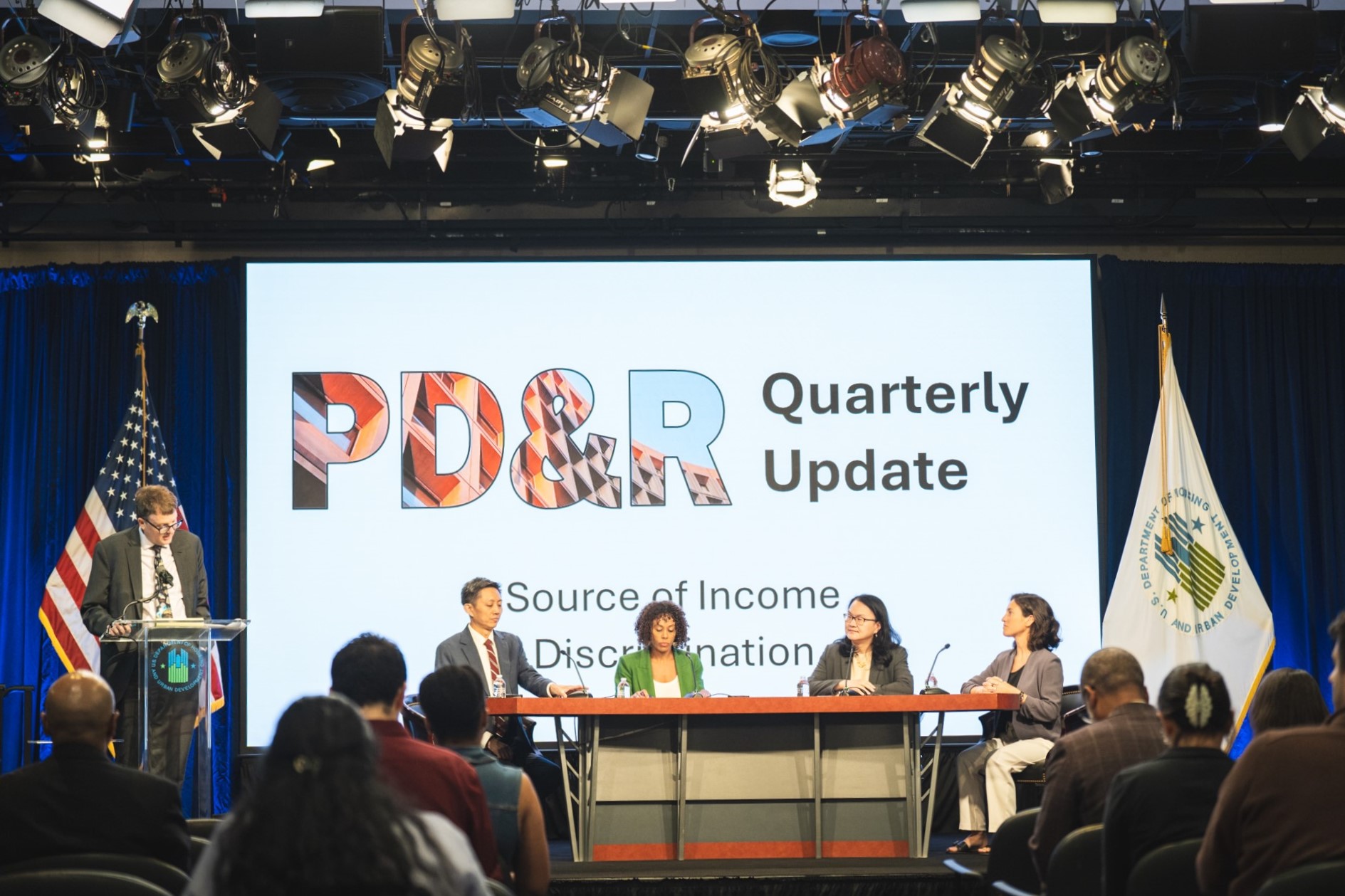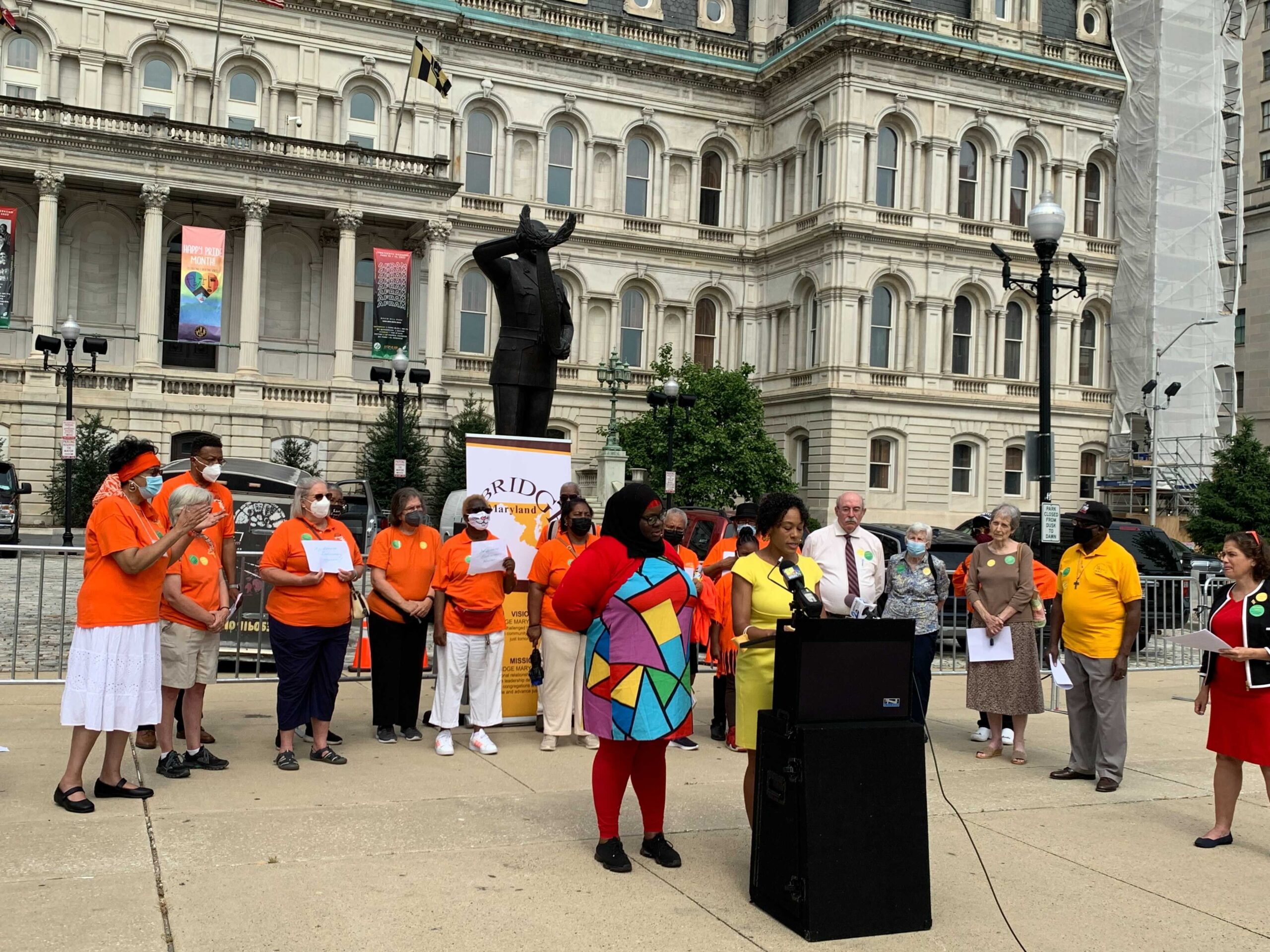
At the Baltimore Regional Housing Partnership, our policy work is rooted in a vision of fairness, inclusion, and opportunity. Guided by our founding mission and the lived experiences of the families we serve, we advocate for long-term, sustainable solutions that expand access to housing, dismantle systemic barriers, and create thriving communities across the Baltimore region and beyond.
Through strategic engagement with federal, state, and local policymakers, we aim to advance reforms centered on the wellbeing and empowerment of families with low incomes in housing, economic development, transportation, health, and education — all essential pillars for a stronger, more equitable region. We focus on addressing inequalities and ensuring that all families have access to the resources they need to succeed.
Advocacy Priorities
Safe, stable housing should be within reach for every family.
We advocate for expanded investments in housing assistance programs, increased housing supply, reduced barriers to access, and policies that make housing choice a reality for more households across the region.
Families deserve security and stability in their homes.
We work to strengthen renters’ rights, prevent unjust evictions, and promote housing stability, particularly for economically disadvantaged households and voucher holders facing increasing pressures in the housing market.
Communities and families thrive when development is both inclusive and equitable.
We champion policies that prioritize affordability and fair access to opportunity-rich neighborhoods.
Our goal is to create vibrant, stable communities where families can grow.
Housing policy must confront the deep racial and economic inequities that shape our region.
We advocate for bold reforms that address historic injustices, dismantle exclusionary practices, and promote access to opportunity for all families, regardless of race, income, or background.
Were you denied rental housing because of your credit score even though you have an active housing voucher? Your story could be a part of our advocacy campaign to prohibit rental providers in Maryland from using exclusionary screening practices like minimum credit scores when evaluating prospective renters who receive housing assistance.
Fill out the form and a member of the BRHP team will reach out to you to learn more about your experience.

The BRHP Advocacy Ambassador Cohort
Are you passionate about making a difference? Have you experienced challenges with housing policies that need to be heard? Do you want to be part of something powerful and public that creates lasting change?
BRHP is building an Advocacy Ambassador Cohort — and we’re looking for bold, inspiring voices like yours.







